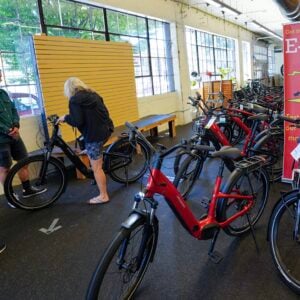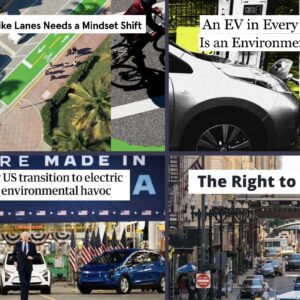We’re told* that in 2015 a record number of (new) automobiles were purchased in the US, and with gas so cheap this surely must mean that everything is hunky dory, that automobility is here to stay.
But what if the way we spend our money isn’t a good proxy for where things are headed, for our capacity to withstand shocks to the system, for the limits to growth? What if our public (political, biophysical) prospects can’t be deduced from our private (economic) priorities? People may have all kinds of conscious and unconscious reasons for buying a new car that fail utterly to take into account the future prospects of automobility or climate instability or gasoline price spikes. What if these purchases, collectively, resist easy extraction of a historical meaning?
Or what if, more or less consciously, we all know what’s coming, that the age of fossil fuels is very nearly over, but we’re afraid and unwilling to acknowledge this because we are terrified of the uncertainty, of what it might mean, of what will replace it? What if by buying a big shiny car instead of thinking about these unknowns we can convince ourselves that, in fact, the collapse isn’t looming? Like George W Bush exhorting us all to go out and buy stuff after 9/11. Because in our economic system when lots of stuff is bought we have learned to infer from this that everything’s hunky dory, because if things weren’t hunky dory we wouldn’t exhibit so much Consumer Confidence….
Why would private corporations whose objective is maximizing sales of automobiles, or governments that measure their success by the GNP, or consumers who have learned to measure their and their peers’ self worth by the expense of their (new) car, allow the shaky resource and climate prospects for the internal combustion engine’s future to intrude on this joyful, collective delusion?
Speeding around blind corners, building hospitals in the inundation zone, putting off the task of storing food and water for the eventuality of an earthquake, buying a new car when the world’s governments just (implicitly, if also half-heartedly) agreed to leave most of the remaining fossil fuels in the ground, unburned… all these human frailties suggest we are not very good at probability, at risk, at accepting the possibility that change could—and perhaps will—come suddenly and unmercifully.
*People keep bringing up this statistic in comments to this bikeportland story: http://bikeportland.org/2016/01/29/portland-auto-show-entertains-their-customers-with-bikes-173714







Thanks for reading.
BikePortland has served this community with independent community journalism since 2005. We rely on subscriptions from readers like you to survive. Your financial support is vital in keeping this valuable resource alive and well.
Please subscribe today to strengthen and expand our work.
Yes, some of these record sales are driven by the low price ( not low cost) of gas. But they are also driven by record amounts of cheap credit in the form of subprime auto loans and long term loans ( 7 years in some cases). Just like the subprime mortgage crisis the auto and banking industries are eager to keep the party going so they doing whatever it takes ot get people to buy cars, as the cost of owning a car gets more and more out of reach